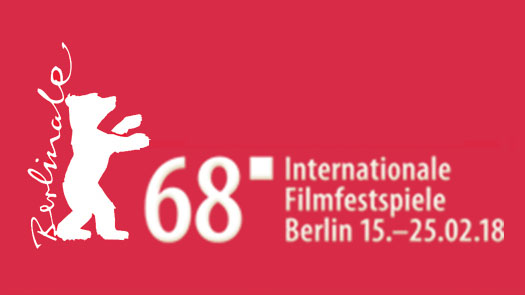Figlia mia (Daughter of Mine): An interview with director Laura Bispuri and stars Alba Rohrwacher and Valeria Golino
Daughter of Mine tells the story of 11-year-old Vittoria (Sara Casu), who is torn between two mothers: her biological one, Angelica (Alba Rohrwacher) – a wild, independent woman who gave her away at birth – and Tina – the conservative, overbearing woman who raised her. We sat down with director Laura Bispuri and stars Alba Rohrwacher and Valeria Golino to discuss motherhood, the #MeToo movement and working with children.
Daughter of Mine takes place in rural Sardinia. What role does the landscape play in your films?
Laura Bispuri: The landscape in my films is very important; this is why I devote a lot of time to location scouting. The way I work, it takes me a couple of years to prepare the film. What we do is write the first draft and then I take a journey, for location scouting, and we write a second draft and then I return to the location and then write some more. We keep doing this through the drafts. It’s also true that places can take on metaphorical images in my films – the cave can act as a reminder of a woman’s womb. I am terrified of the idea that my landscapes might become too postcard picturesque. I want to know the landscape well so it becomes familiar so that my camera doesn’t become fixated on it instead of the characters.
At the end of the film, there is a moment of great catharsis. How does this play into your storytelling?
LB: This has always been a way of ending my films, since my short films through to Sworn Virgin. I like to put my characters through a series of harrowing events that trap them and then I take their hand and guide them through a journey that is aimed at freeing them. This is the reason why I can’t end the film without catharsis because it is about their ability to free themselves from a trap. Usually before the catharsis, there is a moment of total blackness. Vittoria literally descends into the cave and the other characters metaphorically descend into a sort of madness.
Some male critics complained that you deliberately omit masculine voices. What would you say to them?
LB: I think there is one wonderful male character, Umberto, in the film. He is the most positive character. When I’m accused of this, on one side I’m happy because that is a political choice I have made and, on the other, I am bewildered because we come from a history of films where women have always been the backdrop and no one ever dreamt of complaining about it. That reaction gives us a signal of the breakthrough moment we are living through.
How did you find your characters as actresses?
Alba Rohrwacher: We had a reference person – a male friend that Laura and I know. We built a loud voice that expresses itself through shouting. The basis of the character was an exaggerated personality who over-expresses.
Valeria Golino: Both Alba and I arrived quite unprepared. When we arrived in Sardinia, we had only one week of rehearsals and we quickly realised that we were not even close to getting our characters right. There was a real tension the first couple of days we spent together. We felt fake; we were two actresses from Rome trying to do a Sardinian accent. We started rehearsing extensively on our own and with Maria, our dialect coach.
I walked like I never walked before. Laura shoots in such long sequences so it can be very physically demanding. It’s her way, actors have to suffer. She wants that fatigue and stress to bring out emotion.
Also, my character has brown eyes so I had to wear coloured contact lenses, which added to the physical stress. I was very annoyed that Laura insisted on the lenses because I thought it was sadistic on her part. But every morning when I put the lenses on, Tina would come to me. It was like putting the character on every day.
My main focus for the character was the daughter. In my mind it was always “My daughter, my daughter, my daughter”. It’s Tina’s central interest and her identity is built around that obtuse love for Vittoria.
How did you develop this chemistry with the child actor, Sara Casu?
AR: I met Sara in casting. I was part of the team looking to find the character. We auditioned a lot of kids but we struggled to find one who could carry the heavier scenes with me. Then we found Sara, who was magnificent. She was very solid, funny and patient. We began to work together and built a relationship. It was important that my collaboration with her was built on an honest relationship. We couldn’t just buy her gifts to create a fake love, which is common when working with child actors. I had to be there with her to build something genuine.
LB: We were really lucky to find Sara Casu for the role of Vittoria because, on paper, it seemed like mission impossible but then the miracle of her is that she carries the film alongside the other actresses. I could ask her anything on an emotional level and she would comprehend so we were really lucky to find her
What is your opinion on the # MeToo movement and how is it affecting Italy?
AR: I think it’s an important, vital revolution. People are starting to become more aware of the problem. In Italy, the women of entertainment are united by the cause. In Italy, it’s very tough, the politics indicate a lot about the male-dominated culture. Valeria and I joined a group of women in entertainment and created a manifesto, a document that joins our voices the other revolutions in other countries. We were joined by journalists and we started to take some concrete actions in various directions. For example, we are raising funds to help and protect victims of sexual abuse. We are also trying to change legislation in Italy. When a woman suffers from abuse, she has only six months to report it, otherwise it won’t be considered in court.
VG: Over the years, I’ve had similar problems with men in the industry but I’ve dealt with it in my own way. The first reaction was, “Who is this asshole!?” but the second is “Why did I put myself in this situation?”. You blame yourself. Look, I have no problem with a man flirting with me but the moment power comes into it, it’s obscene. This has to stop. I grew up in Greece in the 70s so you can imagine how men behaved back then. I heard so many things I could write a book! So I’m not out after men, I even appreciate the flirting but it has to be removed from abuse of power. The same way women should be paid equally. These are just facts.
Excellent, thank you for your time!
Sean Gallen
Figlia mia (Daughter of Mine) does not have a UK release date yet. Read our review here.
Read more reviews and interviews from our Berlin Film Festival 2018 coverage here.
For further information about the event visit the Berlin Film Festival 2018.






















Facebook
Twitter
Instagram
YouTube
RSS